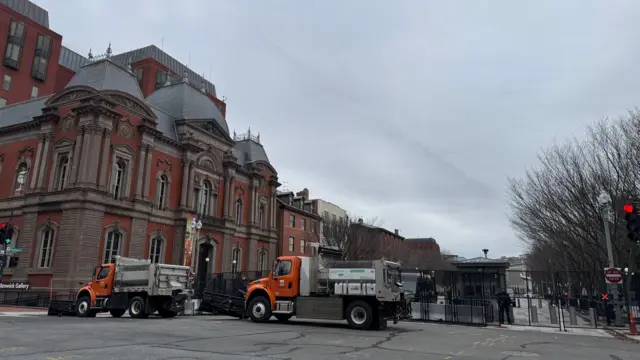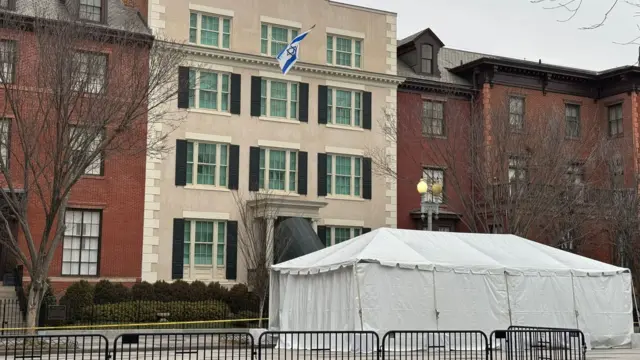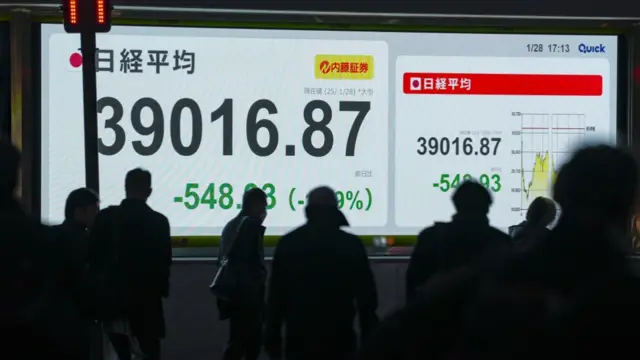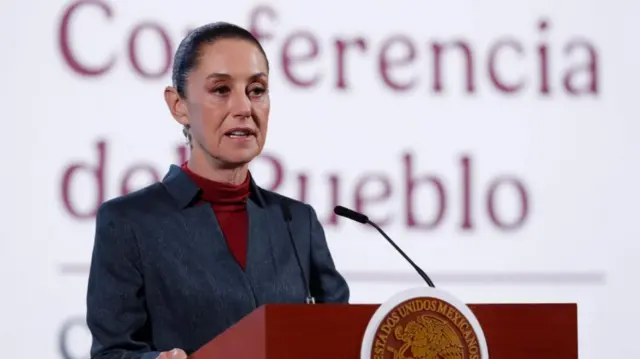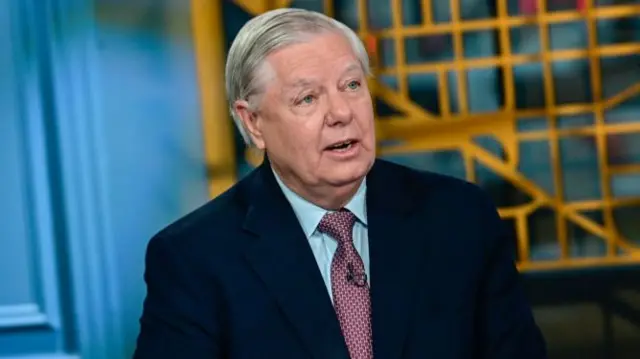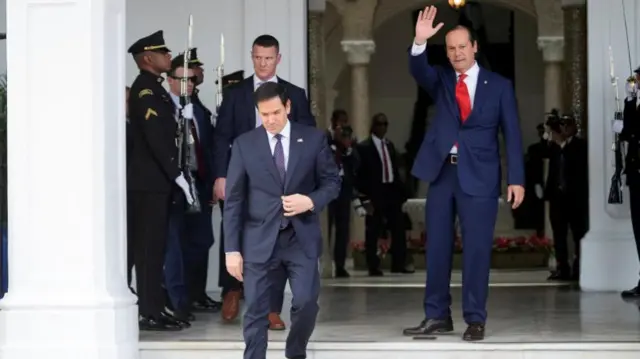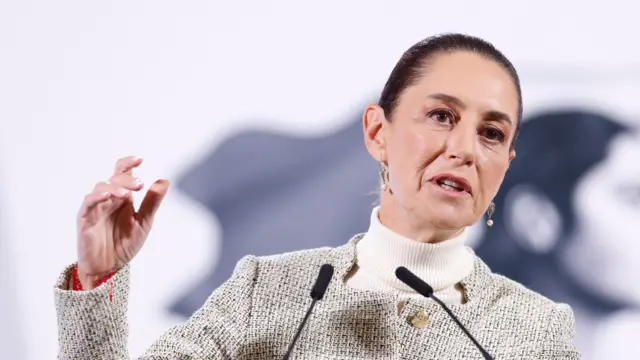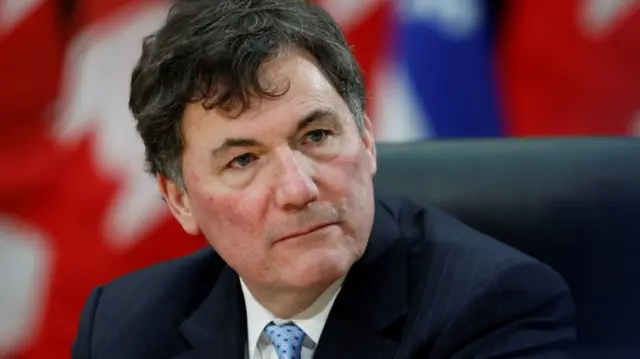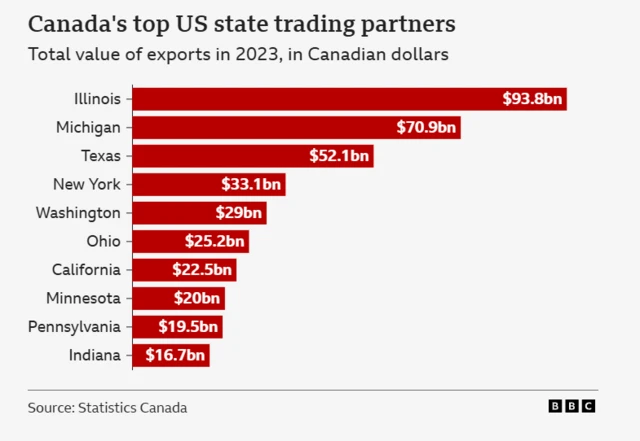UK 'out of line' on trade but situation 'can be worked out', says Trumppublished at 01:20 GMT 3 FebruaryBreaking
 Nomia Iqbal
Nomia Iqbal
North America correspondent
The UK is "out of line" in its trade with the US but the situation can be "worked out", President Donald Trump says.
Asked by the BBC if he would target the UK with tariffs while arriving into Maryland from Florida, the US leader says: "We'll see what happens, it'll happen."
Pressed further, he goes back on himself, saying "it might happen", adding that his real concern is trade with the European Union. "It will definitely happen with the European Union," he says.
He goes onto say that “the UK is out of line. But I'm sure that one, I think that one, can be worked out."




